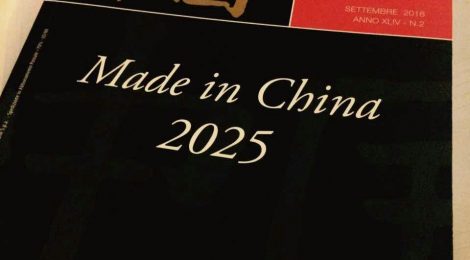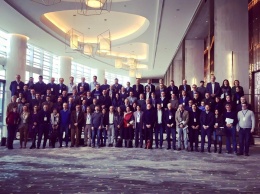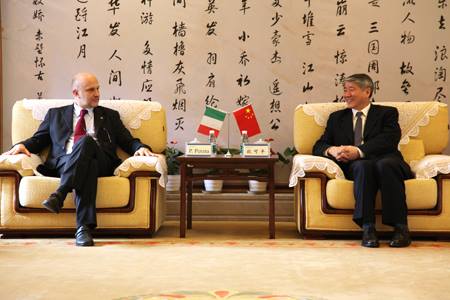
Our contribution to the Italian debate on China’s new economic course
The launch of Made in China 2025 (MiC2025), China’s manufacturing grand plan, has triggered a lively and fertile conversation among enterprises, policy-makers, governments and scholars. “Mondo Cinese”, a periodical published in Italian covering contemporary China’s affairs, has dedicated its last issue to the analysis of such comprehensive and ambitious plan. In this volume, the Director of Galilei Institute, Prof Alberto Di Minin, and its Acting Director, Francesco Silvestri, shared their views on the role Italy can play in the general rearrangement of China’s economic, manufacturing, research and innovation system, reflecting on what Made by Italy might mean for our national players.
According to the authors, China and Italy share several strategic interests and have recently kicked-off a trajectory of growing institutional dialogue, economic transactions and scientific cooperation that will prove mutually beneficial. Today, Chinese leadership is keen to carry on negotiations and establish partnerships with Italy on an equal footing. The Italian community in China should not miss this window of opportunity, as it might be narrowing in the next future.

Terzo raduno del sistema Italia in Cina organizzato dall’Ambasciata il 14 e 15 gennaio 2017
This reflection starts from the Institute’s decade-long experience. Thanks to a dialogue between Sant’Anna School of Advanced Studies and Chongqing University, initiated in 2004 on the occasion of the visit to China of the then President, Carlo Azeglio Ciampi, Sant’Anna had been able to establish a continuative strong partnership, eventually leading to the foundation of the Galileo Galilei Italian Institute (GGII) in Chongqing. Since 2007, the GGII has accompanied Italian entrepreneurs, research departments and scholars to a soft-landing in Chongqing, providing them with substantial social capital, cultural and logistic means to access and succeed in Southwest China.
The experience of Sant’Anna School is peculiar and somehow unique in China. Some key elements have informed and guided this venture. First of all, the interests of Italy as a national system. The potential of Chongqing to project Sant’Anna’s know-how into China was already identified 11 years ago. As former Minister Giannini underlined in her speech of the China-Italy Innovation Forum, Sant’Anna was able to look West and lay the foundations to bring Italian competences in a region which was fairly unknown at the time.
Secondly, the coherence and perseverance to stick to a long-term vision and a solid partner. When moving to China, it is pivotal to focus one’s actions, selecting a proper location, and formulating a very long-term plan; relationships with China are built over time and often go through challenging periods of discontinuity.
Thirdly, empathy is vital. Dealing with a distant culture requires the ability of understanding the partner’s objectives, expectations, and models of organisation which might differ greatly from the ones applying in Italy. For instance, while Europe relies on a very rigid evaluation system, China needs alternative business models, which fit with a different reasoning, more adjusted on trust and relations rather than quantitative metrics. Lastly, despite the flexibility necessary to complement these differences, one’s should not forget to size its achievements and set measurable objectives.
Drawing from Sant’Anna’s experience, Di Minin and Silvestri suggest that the presence of Italy in China should imitate a “lung”: contracting and expanding according to different opportunities and needs, being reactive to the surrounding ecosystem. Once settled down, the aim is to share the experience to other realities, leverage on the social capital gained and make this advantage available to the rest of the country. This long-term and open-ended process has been called by Cohen and Levinthal “Absorptive Capacity,” a concept that should guide and inform Italy’s strategy in China.

The authors call for a more empathic and adaptive strategy and offer a few recommendations: keep oneself informed, not only to understand the rules of the game, but also to absorb and transfer experience, skills and know-how to other Italian players who are preparing to enter China. Be flexible, in order to redirect scarce resources (like people and social capital) and readjust one’s objectives. Keep a knowledge-seeking attitude, patience, long-term vision, flexibility to rethink strategies and redirect resources, all this to be added to a strong intercultural sensitivity, which is a cardinal element. This is the approach that the authors interpret as Made by Italy.




